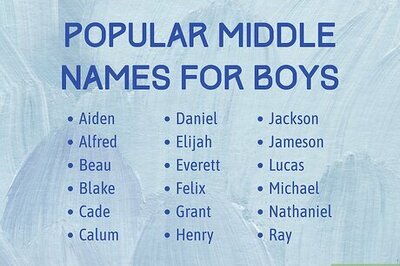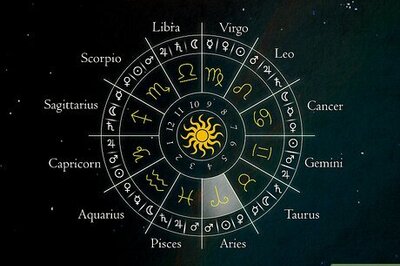
views
New Delhi: A Delhi court on Tuesday awarded death penalty to convict Yashpal Singh for killing two men in the 1984 anti-Sikh riots, the first capital punishment in the case.
Additional Sessions Judge Ajay Pandey also awarded life term to co-convict Naresh Sherawat in the case. The verdict was pronounced in the Tihar Jail due to security concerns and attack on the convicts on the premises of the Delhi court.
On November 14, the court had convicted Singh and Sherawat for killing two men here during the 1984 anti-Sikh riots - the first conviction in the cases reopened by the SIT formed by the home ministry in 2015. The court also imposed a fine of Rs 70 lakh on the duo.
Additional Sessions Judge Ajay Pandey had held Naresh Sherawat and Yashpal Singh guilty of killing Hardev Singh and Avtar Singh. The case was lodged on a complaint filed by Santokh Singh, brother of Hardev Singh.
Delivering the judgment, additional sessions judge Ajay Pandey said the prosecution had successfully proved the offence of murder against both. “The common objective of the unlawful assembly, among others, was to murder people of the Sikh community, which is clear from the slogans raised by its leaders and the manner in which the members carried out its objective," said the judge.
On November 1, 1984, Hardev Singh, Kuldeep Singh and Sangat Singh were present at their grocery shops in Mahipalpur when a violent mob of 800-1,000 people armed with weapons like iron rods, lathis, hockey sticks, stones, kerosene oil, came towards their shops.
They closed their shops and rushed to the rented accommodation of one Surjeet Singh located on the first floor of a house in the area. After some time, they were joined by Avtar Singh, who also took shelter with them. They locked themselves inside the room.
After burning the shops, the mob came to Surjeet's room and brutally assaulted everyone. They stabbed Hardev and Sangat and threw all the men from the balcony.
The accused poured kerosene in the room and burnt it down. The injured men were shifted to Safdarjung Hospital where Avatar Singh and Hardev Singh died and the other three underwent treatment for grievous injuries.
The Delhi Police had closed the case in 1994 for want of evidence. However, a Special Investigation Team (SIT) on the riots further investigated the case.
A case was registered at Vasant Kunj police station in 1993 on the recommendation of Justice JD Jain and DK Aggarwal committee based on the affidavit filed by Santokh Singh on September 9, 1985 before Justice Rangnath Misra Commission and the investigation was conducted by the Anti-Riot Cell of the Delhi Police.
During investigation, the Delhi Police could not gather evidence to prosecute any accused and after investigation, an untraced (closure) report was filed which was accepted by the court on February 9, 1994.
Earlier, the incident was investigated in 1984 and a charge sheet was filed in 1985 against one Jai Pal Singh but he was acquitted on December 20, 1986.
A special investigation team was formed by an order of the Ministry Of Home Affairs for investigating/re-investigating the "appropriately serious cases" of 1984 Sikh riots, which had since been closed.
The SIT was contacted by Sangat Singh, one of the victims, after they published public notices in various papers in Delhi and Punjab and subsequently, they zeroed down on Naresh Sherawat and Yashpal Singh.
Sherawat used to work in Mahipalpur post office as postmaster and Yashpal Singh, a transporter, were members of the mob involved in the attack. The SIT, in its charge sheet filed on January 31, 2017 had named them and said Sherawat had poured the kerosene oil on the door of the room where the victims were hiding.
The SIT also examined Ratan Singh, brother of Avtar Singh, who had settled in Italy. Ratan Singh came down to India in October last year to record his statement since he was the one who had identified his brother's body at the hospital after the incident.
The case which saw conviction on Wednesday saw the SIT citing 18 witnesses in their charge sheet. The court held both the accused guilty under various sections including 302 (murder), 307 (attempt to murder), 395 (dacoity) and 324 (voluntarily causing hurt by dangerous weapons or means) of the Indian Penal Code.


















Comments
0 comment